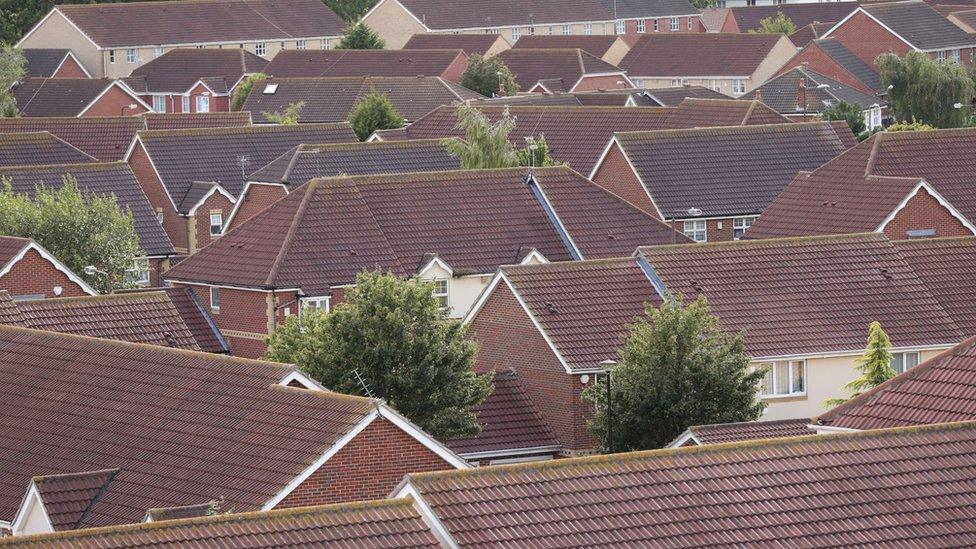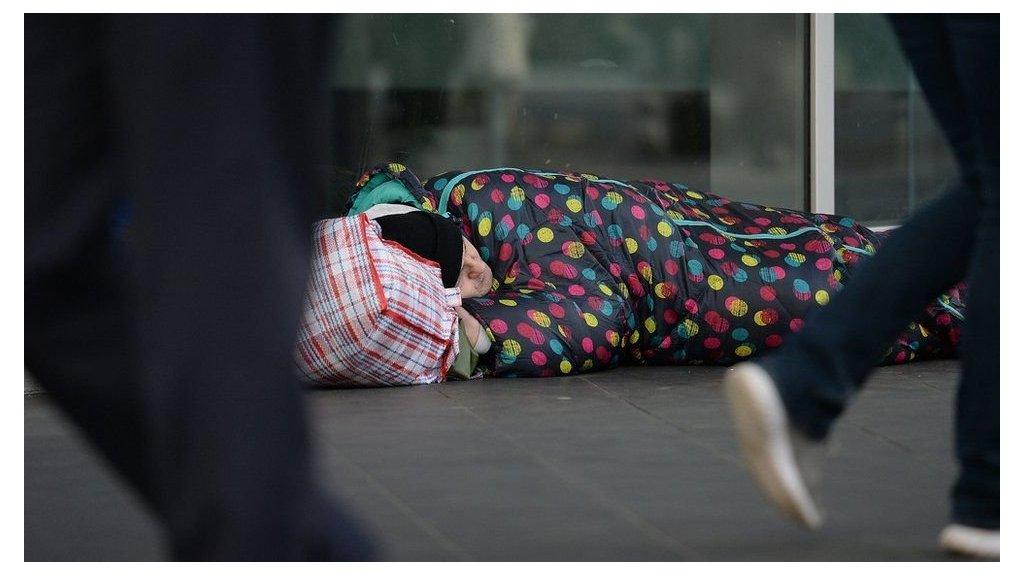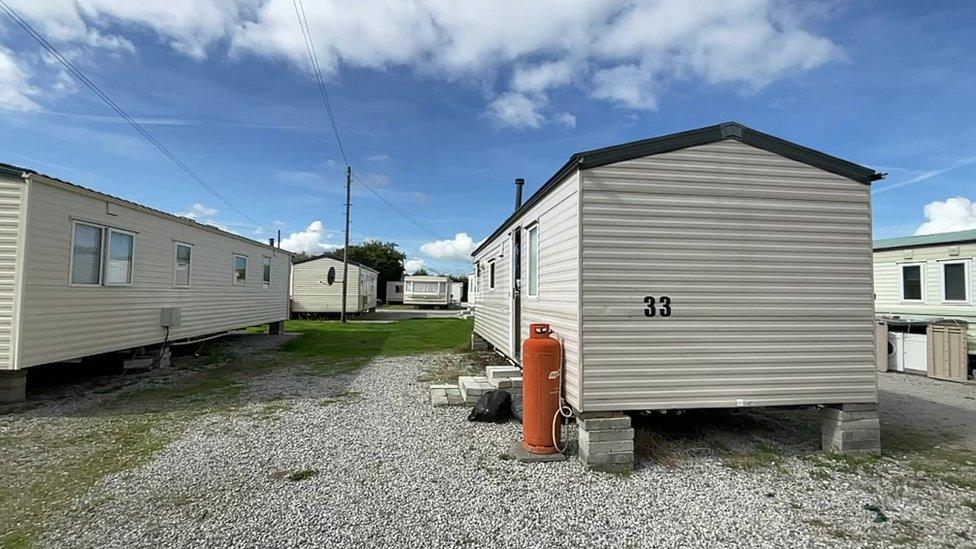Cornwall housing crisis: Emergency housing demand rises after pandemic
- Published

Before the pandemic there were about 250 family groups in temporary accommodation but that has risen to as high as 700
The number of families in Cornwall in temporary accommodation has risen by about 450 since before the pandemic.
Councillor Phil Mason told a meeting the council was struggling to move people into permanent homes.
Mr Mason, strategic director for sustainable growth and development, said it was a key budgetary pressure for the council as a whole.
He said the number of family groups in temporary accommodation remained "stubbornly high" and was about 700.
Mr Mason addressed the housing crisis in a meeting of the economic growth and development overview and scrutiny committee, the Local Democracy Reporting Service reported.
He told the meeting on Tuesday: "Since late 2020 the number of people needing new accommodation has been on a slight decline, but the number of people staying in temporary accommodation remains stubbornly high as we can't get people out into permanent accommodation."
'Unsuitable accommodation'
Mr Mason said while the council had been able to purchase some homes which could be rented out, and also provided modular accommodation to move people into, it had not been enough to cope with the demand.
As a result, he said families were still in "unsuitable accommodation" being put up in Travelodges and Premier Inns.
He said: "Nobody wants to see families in B&Bs, Travelodges, Premier Inns. I would rather have a proper home that people can properly live in and at a level that the council can recover through housing benefits."
Mr Mason said this was also very expensive for the council, as the costs were not fully covered by housing benefits and one of the main reasons why the council's housing department was running over budget.

Follow BBC News South West on Twitter, external, Facebook, external and Instagram, external. Send your story ideas to spotlight@bbc.co.uk, external.
- Published5 June 2022

- Published25 May 2022

- Published11 May 2022
